I'm guessing you are using "std::cout" to print the numbers. If yes, you can specify some formating details before printing the number. You have more details here.
In your case, I would try something like this:
#include <iostream>
#include <iomanip>
int main(){
double l11 = 6, l12 = 403.429, l13 = 1.79146, l14 = 2.44949;
double l21 = 9, l22 = 8103.08, l23 = 2.19722, l24 = 3;
double l41 = 15, l42 = 3.26902e+06, l43 = 2.70805, l44 = 3.87298;
std::cout << std::setfill(' ') << std::setw(3) << l11 << " ";
std::cout << std::setfill(' ') << std::setw(15) << l12 << " ";
std::cout << std::setfill(' ') << std::setw(15) << l13 << " ";
std::cout << std::setfill(' ') << std::setw(15) << l14 << std::endl;
std::cout << std::setfill(' ') << std::setw(3) << l21 << " ";
std::cout << std::setfill(' ') << std::setw(15) << l22 << " ";
std::cout << std::setfill(' ') << std::setw(15) << l23 << " ";
std::cout << std::setfill(' ') << std::setw(15) << l24 << std::endl;
std::cout << std::setfill(' ') << std::setw(3) << l41 << " ";
std::cout << std::setfill(' ') << std::setw(15) << l42 << " ";
std::cout << std::setfill(' ') << std::setw(15) << l43 << " ";
std::cout << std::setfill(' ') << std::setw(15) << l44 << std::endl;
}
that will give you this result:
6 403.429 1.79146 2.44949
9 8103.08 2.19722 3
15 3.26902e+06 2.70805 3.87298
